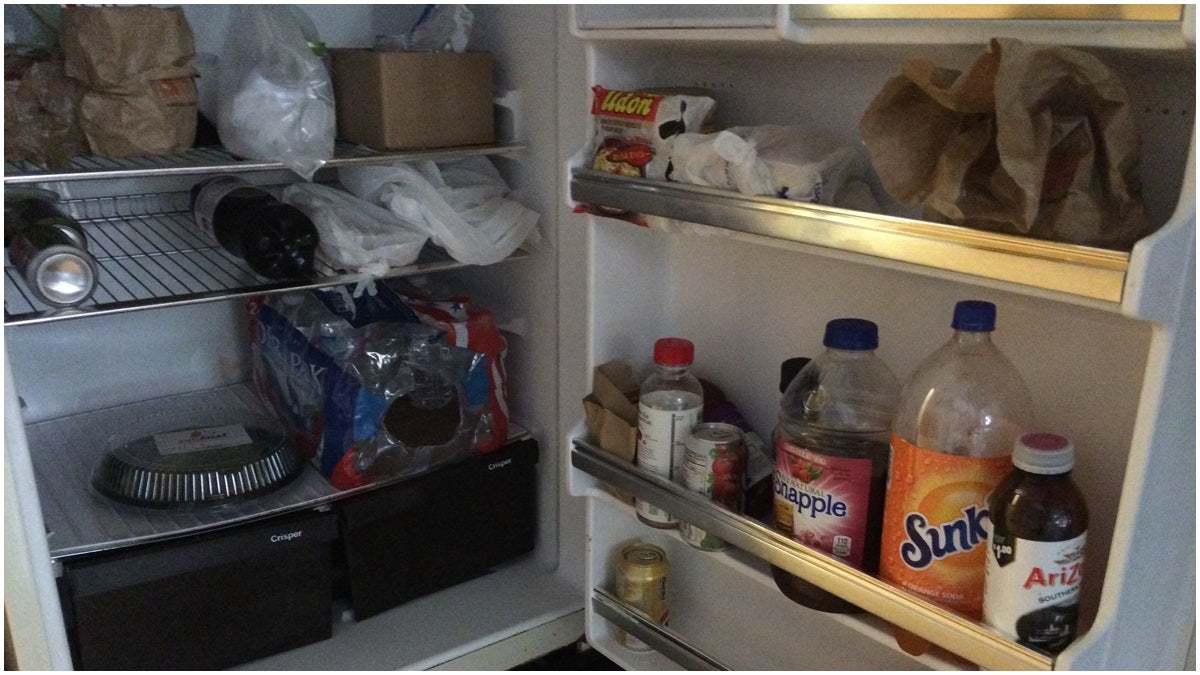Delaware, you could be reimbursed for your rotten food

(Shirley Min/WHYY)
With each hour that passes, I think about all of the food in my refrigerator at home … rotting.
Tuesday night’s severe weather blew through and took my power along with it shortly after 8 p.m. Thousands of others were in the dark too.
Well into Wednesday, and there’s still no sign of its return.
What really stinks is that I just bought two gallons of milk (for my very thirsty toddler), fish, chicken and filet mignon (ouch) two days ago. Now all of that will ceremoniously be dumped into my garbage can later today. I might as well have just thrown cash directly into the trash.
But maybe I don’t have to. And maybe you don’t have to either.
Because I didn’t have electricity, I couldn’t make coffee at home. When I ran out to grab a cup, I vented about my power woes to the woman at the counter. She then proceeded to tell me about how when she and her family lost electricity a while back, her homeowner’s insurance reimbursed her for the food. She too had just gone grocery shopping and stocked her fridge.
Upon her recommendation, I called my insurance company and, lo and behold, my insurance policy covers food spoilage (insurance lingo for rotten food). For me, I just have to wait until my power comes back on and the food has actually spoiled before I can submit a claim, provide a receipt (if necessary) and wait two days before my homeowner’s insurance reimburses me. And no, my premiums will not go up because I submitted a claim.
“Most insurance companies have something for that,” said Shirley Davis, a supervisor with Delaware’s Dept. of Insurance.
However, she recommended reading your policy first, because some insurance companies have different rules. “There could be, say you’re power was out for four days and you didn’t do anything. Sometimes you have to try to mitigate your losses, which means if you have some way of keeping that food from spoiling, and you just let it sit in there and rot you may not get paid for it.”
Davis also said most policies have a cap on how much can be reimbursed. That limit could be $500, it could be $1,000 depending on your provider.
When in doubt, Davis said, it doesn’t hurt to ask your insurance provider about your coverage. I’m sure glad I asked about mine.
WHYY is your source for fact-based, in-depth journalism and information. As a nonprofit organization, we rely on financial support from readers like you. Please give today.





